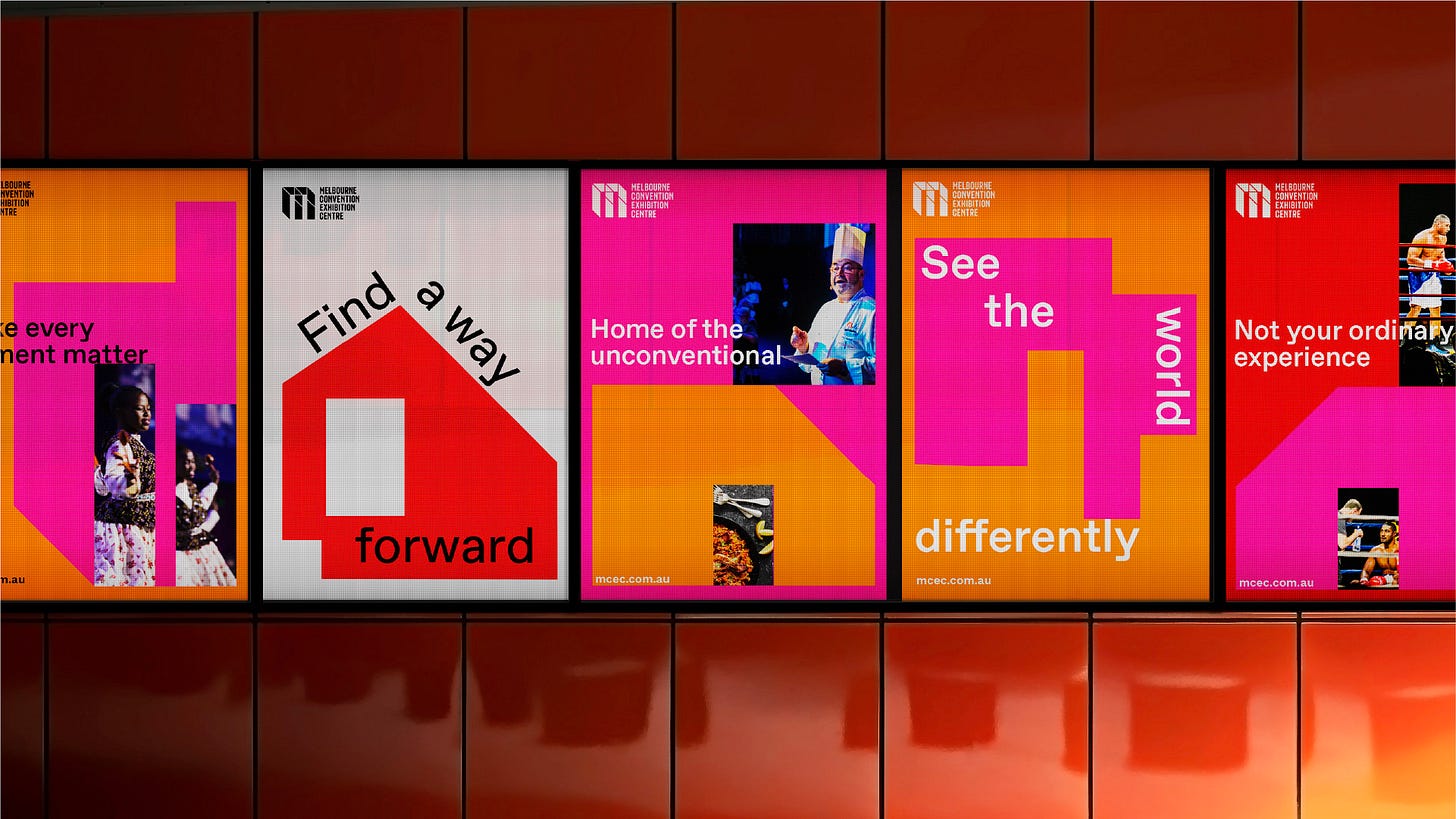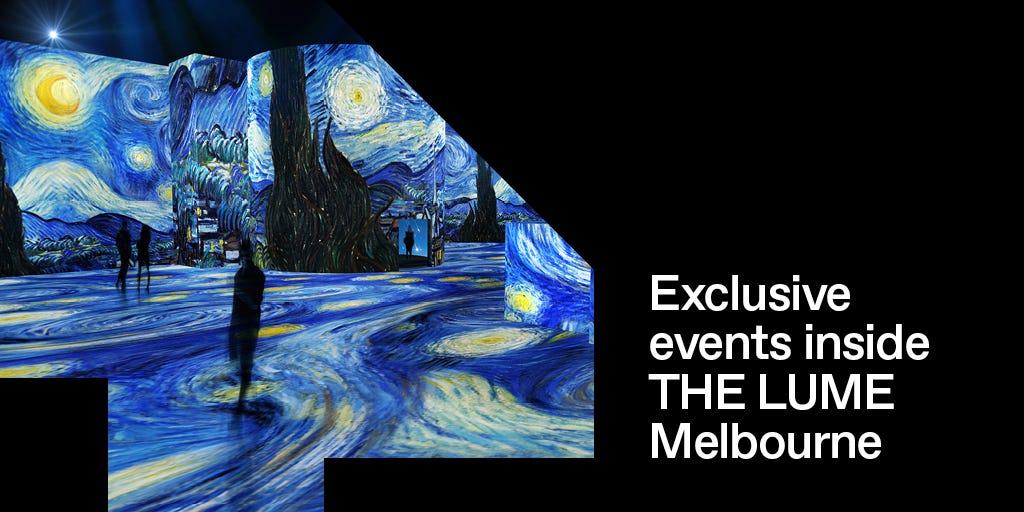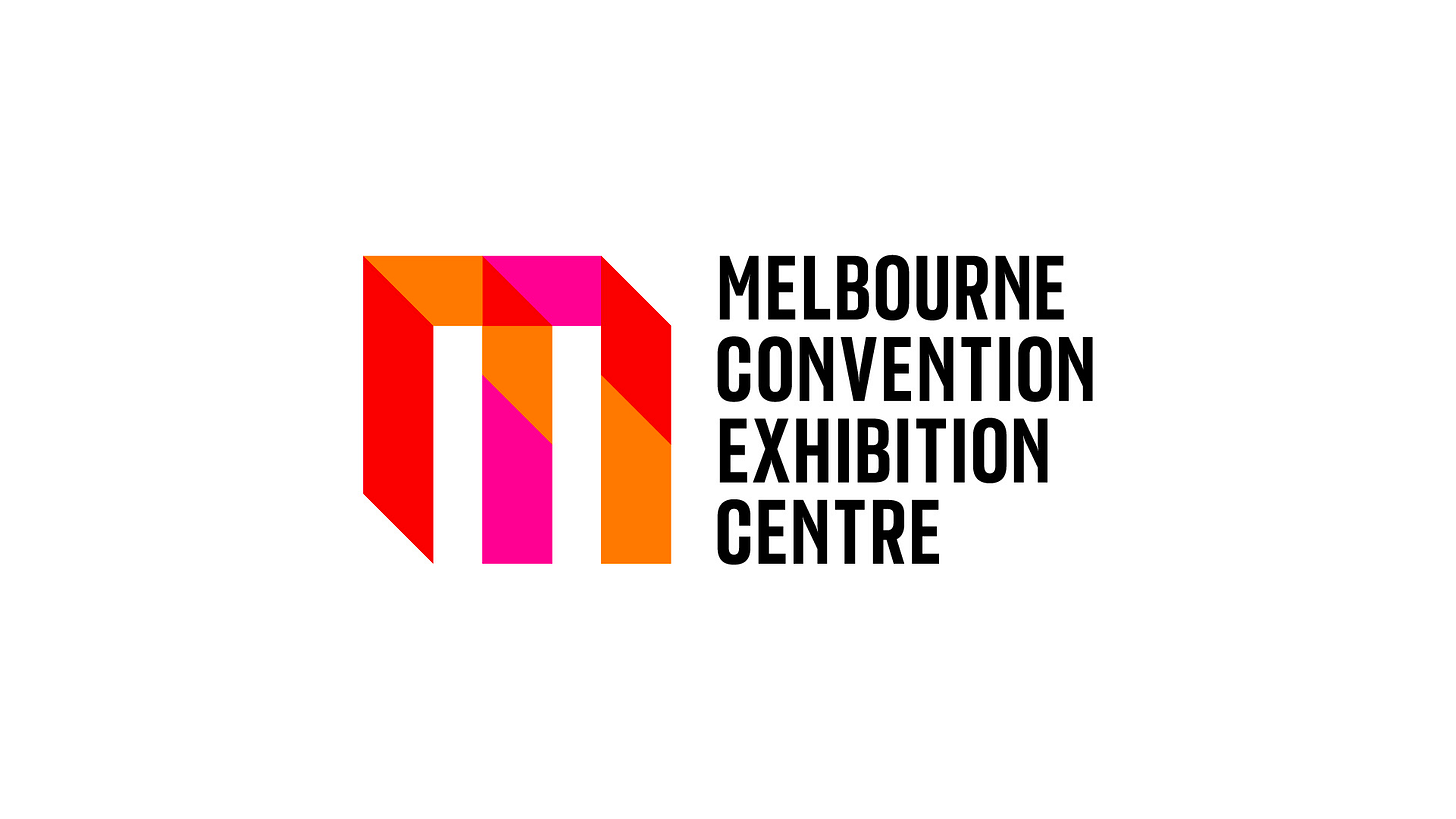How do you move forward in a world that is at a standstill?
Q&A with Melbourne Convention & Exhibition Centre
Now and then, it’s helpful to pull back the curtain on the branding process, reveal different perspectives and share new insights.
When you rebrand an organisation, the process is rarely a straight line. When you rebrand an organisation in the throes of a global pandemic, the process is full of twists and turns.
So we asked one of our clients, Vibeke Stisen, to take us on a deeper dive and share her perspective.
A little bit of background
Vibeke was Director of Marketing & Communications at Melbourne Convention & Exhibition Centre (MCEC) and she led the rebrand, every step of the way.
As you may know, MCEC is Melbourne’s destination for big ideas and inspirational events. In early 2020, confidence and optimism at MCEC was at an all-time high and the centre had been full for the past decade. However, the leadership team knew times were changing – COVID notwithstanding – and they believed MCEC needed to look to the future or risk getting left behind.
It was time for a rebrand and so Vibeke, together with her Executive colleagues and marketing team, worked with us here at FutureBrand to help surface and then strengthen what makes MCEC exceptional – and to do so without walking away from MCEC’s rich cultural legacy or turning the brand into something revolutionary or out of reach. What resulted was a clear and compelling strategic platform that bottles MCEC’s authenticity and celebrates its creativity.
Here’s a Q&A with Vibeke on what it’s like to rebrand a Melbourne events icon in the midst of a global pandemic: how do you move forward in a world that is at a standstill?
Why was 2020 the right time for the MCEC to update its brand?
Vibeke: With a growing awareness that times were changing, MCEC needed to look to the future or else risk being left behind. The competitor landscape was becoming increasingly crowded and seismic technological shifts were fast approaching. The senior team realised that what had propelled MCEC to this point would no longer be enough to keep it moving forward.
The global pandemic changed everything, how did it impact events?
Vibeke: COVID disrupted the events industry more than most. Our core business is to bring people together to learn, celebrate and connect and it’s always been about a physical meeting of like-minded people, a face-to-face connection with experiences for all the senses: sights, tastes, sounds and more. When COVID hit, we couldn’t do any of those things and I don’t think anyone in the industry was prepared for such a significant disruption.
We are all finding our feet in a new world, but how we are tackling that varies dramatically. Many are hoping for things to go back to normal while others, us included, are reimagining ourselves.
It’s challenging because there’s no precedent. We are making educated guesses based on data and insights, but they are still guesses. And it’s particularly challenging because our industry has a very long pipeline – major events are often booked four or more years in advance.
How are you responding to the challenges and changes facing your industry now?
Vibeke: We are facilitating connections in different ways, and in a market that has significantly changed. How do we take all those things that we do really well – exceptional customer service, fabulous food and wine, breathtaking spaces and audio-visual experiences – and bring them all to life online?
Every single player is looking at virtual and hybrid solutions. And most of us are also looking for other ways to use our spaces, introducing new ways of partnering and adding greater flexibility to the way we work with customers who are themselves facing huge uncertainty.
How did you factor those new dynamics into your rebrand?
Vibeke: We are lucky to have a brand that is well-known, here in Australia and around the world. We are recognised as a leader in our space – in the traditional, pre-COVID world that is. We wanted to make sure the brand reflected more than just physical experiences, but that it championed what makes us really different: our people, who are innovators and deliver exceptional experiences because of their partnership-focused approach.
We wanted to have a brand that set us apart from our traditional competitors and aligned with how Melbourne and Victoria are positioned as destinations globally.
What hurdles did you encounter as you moved through the rebrand?
Vibeke: We worked on the rebrand during a truly challenging time. Our doors were closed and we faced many uncertainties. Adding a bold rebrand to the to-do list was a big ask but a thoughtful and collaborative approach was just what we needed. We were lucky too that the support from both our Board and the Executive team was so strong.
Developing the rebrand strategy and blueprint was a great process, but launching was a significant challenge. Our budget was limited as a result of not being able to deliver events. Our brand is very much about experiences, so I think the real test of the strength of the rebrand lies ahead of us when we reopen and our partners return for the experience.
Describe some examples of how COVID forced the business to innovate and be creative?
Vibeke: Almost overnight, we lost a year’s worth of bookings. For events our people had been working on for months, even years. And there were no new bookings coming in. We found ourselves with a significant workforce and huge spaces, and nothing to do. So we had to be creative.
Our bays, usually full and busy with exhibitions, were turned into a drive-in cinema in partnership with Village and a film studio recording a Hollywood blockbuster. Guide Dogs Victoria used our spaces to train puppies in a set-up that matched the shopping centres where puppies would normally be trained. In our kitchen, our team partnered with Flinders & Co and delivered pre-prepared food sold to major supermarkets around Australia.
Many of those ideas were the result of our Unconventional Thinking initiative, which embraced the challenges presented by COVID and explored all kinds of creative thoughts for how we might respond. In fact, we even invited FutureBrand to participate and they formed part of the team that contributed to one of the winning ideas.
We partnered with businesses in ways we would never have imagined, and we reconsidered our approach to partnerships with us being much more involved in the running and promotion of events. Many of the things we’ve been working on over the past year are coming to life only now. Our partnership with Grande Exhibitions is a great example of that with a multi-year agreement to bring Australia’s largest immersive digital exhibition, The LUME, to Melbourne.
Would you have explored these solutions if COVID hadn’t happened?
Vibeke: I think MCEC is customer-focused and innovative to its core. Digital disruption was certainly something the business knew was coming and therefore planning for, but I also think it’s fair to say that we would never have entertained the ideas that we ultimately brought to life if it hadn’t been for COVID. Our space was fully booked before COVID and we simply wouldn’t have had the capacity to use our space in new ways.
What’s in the MCEC’s future?
Vibeke: Our future is exciting. We know that many of our customers just want to get back to what they do best: bringing people together. We do too. But how we do it will be different and I think we’re all the better for it. We’ll be able to connect with customers we’ve never connected with before – audiences around the world – and we’ll be able to partner in different ways.
We’ve embraced innovation and learnt to be brave.
For more about MCEC, visit their website and Instagram page.
I hope you enjoyed reading Vibeke’s deeper dive into leading a rebrand – from the perspective of a Marketing Director. If you’d like to know more, ask a question or share a comment, please do – as ever, I’d love to hear from you.









